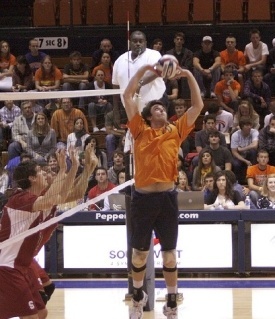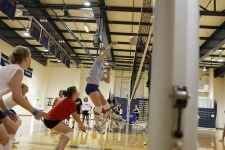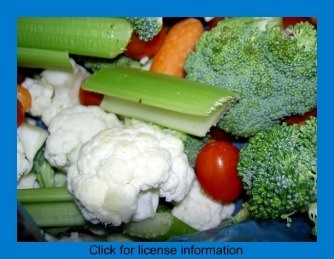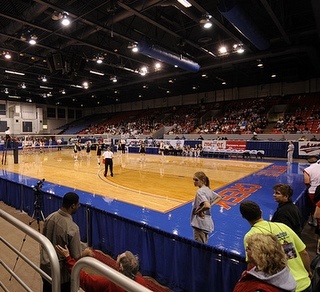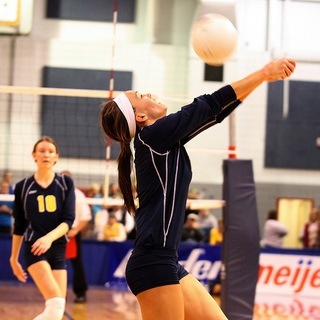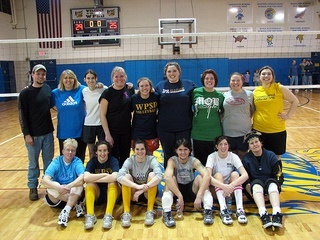This exclusive interview with Dave Cross will be a great opportunity for you all to learn from a great coach. You don’t know who Dave is?
Dave Cross is the Co-author of the Nationally Acclaimed Book, Volleyball Cybernetics and National Director of “Yes, I Can!” Volleyball. Dave is a founding member of the “Yes, I Can!” Volleyball Camp Program which began in 1986, and has conducted camps and clinics in over thirty states nationwide. The Head Coach at Keystone H.S. in LaGrange, Ohio for 23 years, Dave retired after the 2007 season, then returned for one more season in 2010. During his tenure, he won numerous Coach of the Year Awards, including a Special Mention State of Ohio Honor in 1998. Since 1992, Dave’s Wildcats posted an overall record of 285-79, captured Ten Conference Championships and qualified for the State Tournament “Sweet Sixteen” four times. In 2003, Dave recorded his 300th Career Coaching Victory. Also active in club ball, Dave helped establish the North Central VBC in 1993 and served as an Assistant Director and Coach for seven years. He is currently the Assistant Director of the Spirit VBC from Ohio’s Lorain County. In 2009, Dave was inducted into the Lorain County Volleyball Coaches Hall of Fame.
I am very grateful for Dave taking time out of his busy schedule to do this interview for you all.
When it comes to a close volleyball match, what do you think makes the difference between the winning team and the losing team?
Dave Cross: The team that keeps their focus in the “present moment” the most consistently, and stays aggressive, will come out on top the vast majority of the time. Players need to realize that once the play is over, they need to learn from it and focus on the next play. Unless it is set or match point, a team can always erase the affect of losing a point by winning the next one. Being strong mentally is vital to success in our sport. We always stress to our players that when “the skill is equal, the team with the stronger will comes out on top.”
What advice would you have for a coach in preparing their team for matches and tournaments?
Dave Cross: Keep your team in a consistent pre-match routine, from the time they arrive at the gym until the start of the match. Also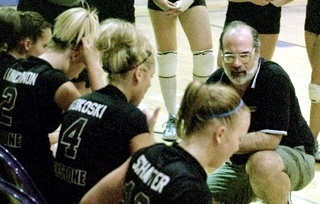 , we always tell our players, “No Surprises”, don’t do anything out of the ordinary with their hair or uniform accessories. You don’t want them focused on their appearance and how it is being perceived, instead of the task at hand.
, we always tell our players, “No Surprises”, don’t do anything out of the ordinary with their hair or uniform accessories. You don’t want them focused on their appearance and how it is being perceived, instead of the task at hand.
I also believe strongly in scouting your opponent and going over this info with the team prior to them getting dressed. We give them strategies involving where and where not to serve to, what areas to attack offensively, what they want to focus on taking away from the opponent, and what serving strengths to be prepared for.Once this is covered, my teams go through a pre-match visualization session. During this time, they watch themselves making positive play after positive play, ending with them making the play to win the match. We always have them include the score before the plays and the team celebration afterward, also.
What can coaches do during practices to get the most out of their players?
Dave Cross: First of all, they need to understand what is expected. We stress to our players that we expect 100% effort both mentally and physically at all times. Thus, the only mistake they can make is to not give this effort. Any mistake in skill execution, when they are focused and going hard, can be learned from so we call those “learning experiences.”
We also stress to them the “fun” of playing the game with this 100% effort. When it comes right down to it, this is why the kids play: It’s fun to them. And, it’s the most fun when they are playing well. And, they will play their best when they are giving the maximum effort.
In terms of a practice plan, we always start out with a fun warm-up game and then a dynamic warm-up. We will do a couple of skill-specific shadow drills (no ball), and then play some variation of pepper (which we change up daily). We will then move into position-specific passing and setting drills, then move to a serve receive drill that includes the setters. Or, we will break out the setters with the middles and rightsides while the passers receive on the other net.
Then we typically move to hitting drills with one setter with the OS’s and the other with the MH/RS’s, and switch the setters half way through, and then end up with a couple of competitive scrimmage situation drills that always are goal-oriented.
Serving is sprinkled in throughout the course of the practice, usually five serves at a time to a target, with a serving game thrown in once in awhile for a fun five minutes.
The bottom-line, no matter what the skills being worked on, is to keep the players moving and involved. Drills for any skill should very rarely last longer than 10-15 minutes at tops. And, make sure that the players are working on the skills that they need to perform well to help the team be successful. It’s not very productive to have your big RS digging balls for 10 minutes every day if they don’t even serve in your rotation.
Of course, there are times a problem area needs addressed and the schedule is adjusted accordingly. But it is still important to make sure everyone is moving and working on their needed skills, while keeping the time used on anything in the 10-15 minute range.
What can players do to improve their passing skills?
Dave Cross: Proper technique and repetition while moving to play the ball!!! Yes, we do some stationary passing for about a minute, but after that we make it “game-like” and force them to move to play the ball. I have an article on our site that takes you through our entire technique and how we drill it.
Many players only focus on hitting hard. Do you feel that there are benefits to other types of hits?
Dave Cross: Most definitely! We teach players to be “smart-aggressive” when attacking. They need to understand that the timing and contact-point is not always where it needs to be to successfully “swing away.” Off-speed shots, roll shots, tips, and shoots can be just as effective as a “hammer shot.” By that I mean, the goal of an attack is to get the ball to the floor. It doesn’t matter how it gets there as long as it does.
We use a drill to teach these called H.E.B. (Hand-Eye-Ball) where the players start just behind the ten foot line and self toss the ball to themselves so that they can take an approach and swing. The timing with a self-toss will vary, so they are forced to adapt and make a smart, but aggressive attack. We put cones, or some sort of market in different spots on the floor on the opposite side of the net and tell the players to pick one and try to put the ball on the floor at that spot. This is also an excellent way to work on attacking the holes in an upcoming opponent’s defense.
What can people expect when they attend one of your camps?
Dave Cross: Our camps are high energy and demanding, but fun at the same time. We provide a very positive atmosphere in which we encourage players to “play their weaknesses” so that they can improve at them. This is a key point in understanding the value of our camps: Most players tend to avoid using skills and strategies they are not confident in. Well, if you don’t work at something, how are you ever going to improve at it?
We cover every skill, teaching the techniques we have found to be successful for us over the years. We cover offensive and defensive strategies, along with serving and serve receive strategies as well.
But what sets us apart from other camps, is that we incorporate our “Yes, I Can!” mental training techniques into the camp and teach the players how to use visualization, positive self-talk, and goal setting to improve their skill execution, energy, enthusiasm, and team cohesiveness.
The bottom line is you get everything you would expect from any top-notch volleyball camp, plus our “Yes, I Can!” mental training techniques as well.
During the off-season, what types of conditioning would you recommend for players?
Dave Cross: Two words: Barry Lovelace! The man has developed the best volleyball-spedific training program I have ever seen by far. Barry’s “Training for Volleyball” program develops volleyball-specific strength, quickness, and agility without the use of heavy weights. If you aren’t using his program, you aren’t doing the best you can for your players.
Dave Cross has a members area on his website that is available for coaches. This area includes valuable resources for a one-time fee. If you haven’t already seen what he has to offer, you should check it out at Yes I Can Volleyball.
Again, thanks to Dave Cross for providing this valuable interview and sharing his knowledge and expertise with all of us.

